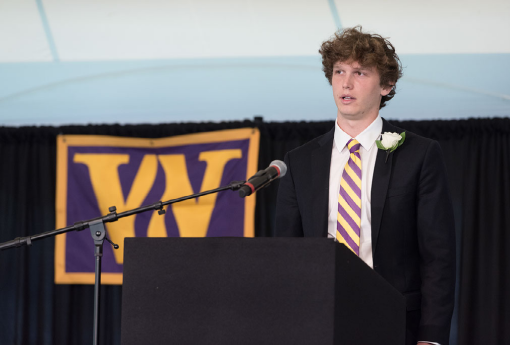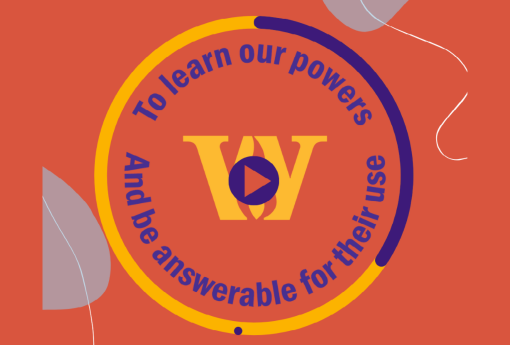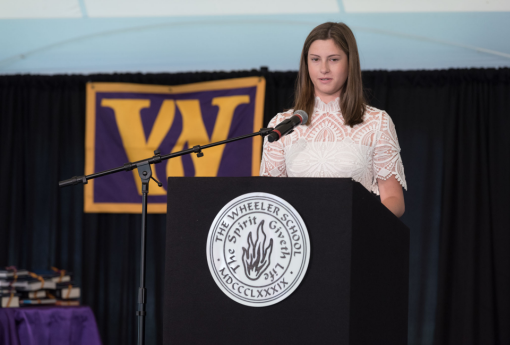
Junior Receives National Microgrant Through United Way and Pop-Tarts
February 13, 2020
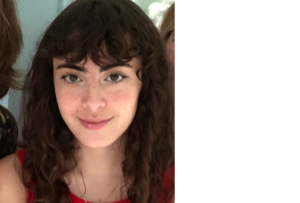
Jane Josefowicz ’21 is one of ten winners to receive a $5,000 Rep My City Challenge microgrant through United Way and Pop-Tarts. Jane’s proposal for a Refugee Translation Assistance App was inspired by her work at the Refugee Dream Center (also a new Cityside collaborator) in Providence, RI. Jane deepened her love for Arabic through the Wheeler Aerie enrichment program. Read how Jane describes her project below.
I volunteer at the Refugee Dream Center (RDC) in Providence, a non-profit that helps refugees in Providence with various forms of practical assistance not covered by existing governmental programs. This fall, I helped to teach English to adult refugees from various countries. One day, a woman from Syria named Saadia arrived with stacks of mail that she had been saving because she could not read it. Some items were nearly a year old. What scared me most, though, were the letters about healthcare, Social Security, and the Rhode Island Works cash assistance program. I did not know how these programs worked, but I knew they were important, and the letters might contain information that could not wait. My supervisor at the RDC knew more about programs like these, and together we helped to translate the important letters into Arabic, which I am learning, and to advise her about what to do with them.
When I went home that night, I talked to my dad about what had happened, and he said that his father (my grandfather), the son of Jewish refugees from Poland, used to tell him about similar backlogs of mail in their house, things delivered that would go unread because of an inability to read them. Thinking about the people I taught at the Refugee Dream Center (RDC), I wondered if this was a problem for the students who were pre-literate or had very little English. Although this is a common predicament for many refugees, it poses a particular burden for women. Even though they arrive with little education from their native countries, mothers and sisters are often responsible for domestic literacy tasks like reading the mail.
My idea to help is a WhatsApp-based translation service. WhatsApp is a good platform because you can send pictures and voice messages on it, eliminating the barrier that written text poses for people who are pre-literate in English and their native language. The program would work like this: a person fluent in English with a working proficiency or fluency in another language such as Arabic, Kurundi, or Swahili, would be paired through WhatsApp with someone like Saadia, who wants help with understanding small things in English, like a letter. Each time they need something translated, they could send a picture to their translator, who would get back to them within a few days with either a voice message or a text, depending on the literacy level of the person, explaining what the document is and, if it is important, what to do with it.
To help my plan succeed, I would partner with the non-profit that I was volunteering with when I had this idea, the Refugee Dream Center (RDC) in Providence. To find translators, I would also need to connect with local universities. Right now, my supervisor is a current student at Brown University, so he could help me network in that area.
This project would start in February with networking to find potential translators. I would organize workshops to teach them about various government programs that they could expect to see in the mail, what pieces of mail are important, which need to be brought to a case-worker, and so on. By June, the program will be integrated into the RDC’s offerings. Ideally, it would be an ongoing project with no end date, continuing to self-propagate even after I’ve left Providence for college.
To judge the success of this project, I propose a beta-test of it. It would start in February, run until June, and then during June and July, and the RDC would survey those who used the program to see whether it was helpful. Survey questions would address ease of use, quality of translators, to what extent it helped reduce stress around the mail, and opportunities for improvement. If the reviews are positive, the project will have been a success because it helped people, and hopefully, it would start up again in August.
Visit the Rep My City Challenge website to learn more about the ideas of these amazing young people.
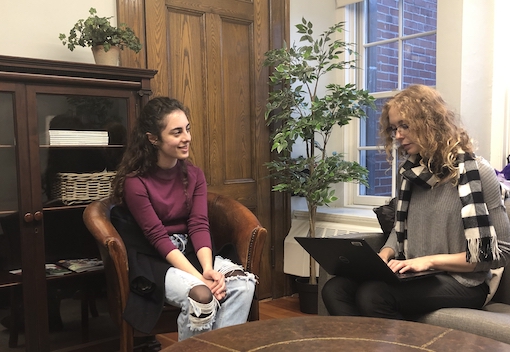
Read the story about Jane in the Providence Journal here.
